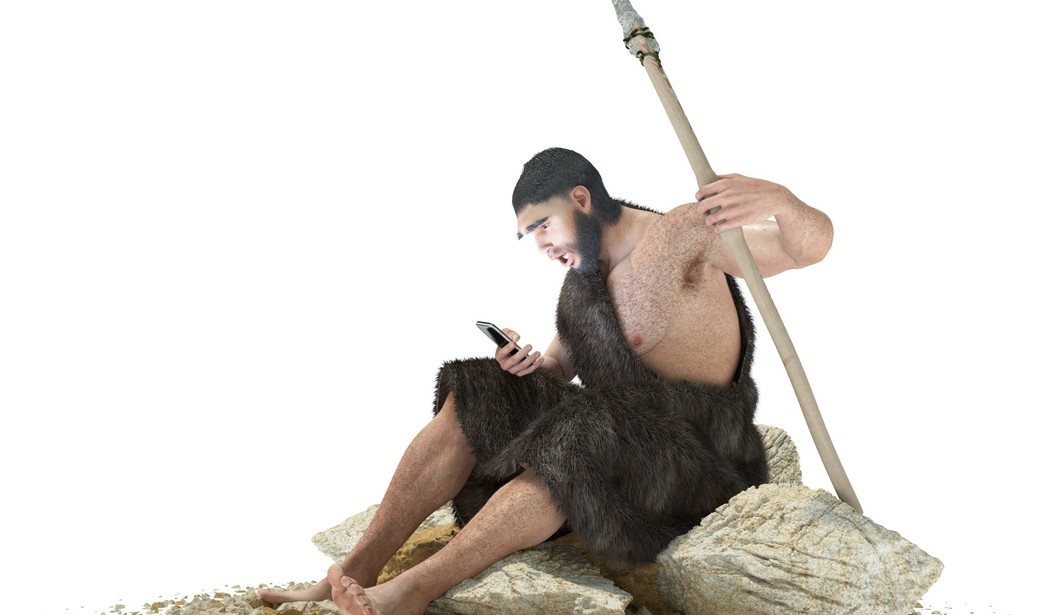The scientific director of a genomic research company wrote to say my last post, Witchcraft, touched on the key themes of his book The Evolution of Scientific Knowledge: From Certainty to Uncertainty published in November 2016. The email ended with the exhortation: “Thanks, and I wish you the best in the new year with your battle against the new Dark Ages”
Edward Dougherty‘s book dealt with the problem I raised in my post: whether it is possible to meaningfully model problems too big to reproduce in the lab. Readers will recall the Witchcraft post began with an observation about the validity of global warming models from a friend:
There was an article at WAPO about saving the existing climate data before Trump burns it like Staked out witches. A he won’t do it, other’s will use the rumor of it disappearing it as an excuse for their own future failures, Because eventually people will find they’ve been made a fool of because B it’s not science until the algorithms are posted along with the data and the steps to reproduce the results. And the results reproduced several times, and since the costs are so great, larger than any drug failure the reproduction and analysis must at least meet that bar. Reproduction, data and algorithm published, and double blind analysis of the results. Else it’s not science.
I added that: “the earth’s climate is too large and chaotic to reproduce in the lab … For really big problems — and human history is one — hard science is hampered by the difficulty of reproducing the experiment. In these cases we go back to some form of magic. Society uses science and technology to deal with defined, reproducible events. When we need to make a call we buy a phone. When we need to create peace in the Middle East we leave it to John Kerry and the United Nations.”
The idea modeling complexity would be difficult was not new. Jose Luis Borges wrote a story in 1946 about the difficulty of creating a “map as big as the world” titled The Exactitude of Science.” In that Empire, the Art of Cartography attained such Perfection that the map of a single Province occupied the entirety of a City, and the map of the Empire, the entirety of a Province. In time, those Unconscionable Maps no longer satisfied, and the Cartographers Guilds struck a Map of the Empire whose size was that of the Empire, and which coincided point for point with it. The following Generations, who were not so fond of the Study of Cartography as their Forebears had been, saw that that vast map was Useless.”
That is very similar to the problems we face now. A map as big as the world is useless because any economical map of a chaotic, open system must be smaller than the world itself. But what if at maximum compression, it’s full size? It’s a problem Edward R. Dougherty of the Center for Bioinformatics and Genomic Systems Engineering, who wrote to me, takes up:
today’s major scientific and engineering problems—in biology, medicine, environmental science, etc.—involve enormous complexity, and it is precisely this complexity that runs up against the limits of what is scientifically knowable. To understand the issue, one must appreciate the radical break with antiquity that occurred with the birth of modern science in the Seventeenth Century, the problems of knowledge and truth engendered by modern science, and the evolution of scientific thinking through the Twentieth Century.
He calls it the “Crisis of Complexity … as technology provides more detailed observation, Nature is becoming more unfathomable”. His book, an excellent history of the scientific method, explains how we got to the present dilemma. Beginning with Newton’s Hypotheses Non Fingo, scientific truth began to detach itself from intuition. Mathematical prediction and reproducible results were all we could know of nature, nothing more. “The advent of quantum mechanics in the first part of the Twentieth Century brought it to light: a theory may be preposterous from the perspective of human intelligibility but lead to predictions that agree with empirical observation—and therefore be scientifically valid. Man can possess knowledge beyond the limits of his physical understanding.”
It worked for a while then the objects of scientific inquiry went into the big league. The relatively simple subjects of 20th-century science became not only unintuitive but vast beyond human comprehension. The really complex domains of 21st-century science are thorny because there are so many variables we cannot populate the data set in the classic way. We can’t build maps as big as the world and don’t know what else to do.
Dougherty proposes replacing impractical models with a heuristic guided by a Bayesian, replacing science with engineering, looking for methods to partition problems and simplifying them. But he has no illusions. In his view,
we are living through a second crisis of reason, from which we cannot escape until another scientific revolution arrives. It is not the first crisis of reason. Another may have occurred at the end of the Roman empire “with the failure of reason to bring material well being and spiritual contentment” to an epoch that had suddenly stopped working.
The old mental models were dying and “St. Augustine (354–430) of Hippo … argued that the intellect is weak and there are many paradoxes that human reason cannot resolve. Therefore, do not try to ground faith upon reason. Augustine advises, ‘Seek not to understand that you may believe, but believe that you may understand.’ Put another way, faith precedes understanding.” Reason hit a wall and stayed there for hundreds of years.
It had to in the absence of an alternative and the Middle Ages supervened until men could think their way out of the rut. This creates a tantalizing parallel with the present. By some reckonings we are living through the second fall of Rome. The progressive project, which only yesterday was so confident, is confounded. It is stopped in its tracks, unable to explain Global Warming, formerly known as the New Ice Age, or why history didn’t end or Communism succeed. People are reacting, as they did at the decline of Rome, by adopting a religion in the face of the failure of the old mental models. You can almost imagine the Sanders and Corbyn people waving their hands in the air chanting ‘global … global … global’.
They are chanting not in defiance, but in fear, the cry of a new barbarism. It may be more than coincidental that the rise of radical Islam has coincided with the growth of Nihilism in the West. A second Middle Ages is rising from the ruin of reason, again in a different form. As the rainbow banner of political correctness was lifted to the sky, so too is the black flag of the prophet rising to take up the slack. Psychologically it is hard to live in doubt and the multitudes are sheltering in whatever creeds they may. Where could those cast out by the alienation of reason from human meaning hide from crushing doubt except in the complete subjectivism of postmodernism or equally absolute fanaticism of dogma?
Perhaps we are going through a traumatic paradigm shift driven by a crisis in epistemology, the relationship between man’s mind and what’s out there — if there’s something out there — which despite our denials is something we need to know. Humanity is haunted for the second time by the possibility that not only is decrypting nature impossible but even the cleartext is beyond our understanding.
Man has lived in two worlds for long stretches. Formerly he knew how to manage the tension but in times of crisis he inhabits neither with any ease. “You can’t predict the future,” Michael Crichton told Charlie Rose, who asked him about Global Warming: “no we can’t predict the future” though Charlie Rose would have given anything for Michael to say that we could. You see, Charlie thought we still had our bearings.
Follow Wretchard on Twitter
Support the Belmont Club by purchasing from Amazon through the links below.
Books:
Hero of the Empire: The Boer War, a Daring Escape, and the Making of Winston Churchill, by Candice Millard. While this is a thrilling narrative of Winston Churchill’s extraordinary and little-known exploits during the Boer War, it is more than an adventure story, for the lessons Churchill took from the Boer War would profoundly affect 20th-century history.
Valiant Ambition: George Washington, Benedict Arnold, and the Fate of the American Revolution, by Nathaniel Philbrick. An account of the middle years of the American Revolution, and the tragic relationship between George Washington and one of his favorite generals, Benedict Arnold – an impulsive but sympathetic hero whose misfortunes at the hands of self-serving politicians fatally destroy his faith in the legitimacy of the rebellion. As a country wary of tyrants suddenly must figure out how it should be led, Washington’s unmatched ability to rise above the petty politics of his time enables him to win the war that really matters.
White Trash: The 400-Year Untold History of Class in America, Author Nancy Isenberg upends history as Americans know it by taking on their comforting myths about their class-free society and exposing the existence, from the time of the earliest British colonial settlement to the present, of the white underclass.
Jungle of Stone: The True Story of Two Men, Their Extraordinary Journey, and the Discovery of the Lost Civilization of the Maya, by William Carlsen. This is the unforgettable true story of the discovery of the ancient Maya. Enduring disease, war, and the torments of nature and terrain, American diplomat John Lloyd Stephens and British artist Frederick Catherwood meticulously uncovered and documented the remains of an astonishing civilization that had flourished in the Americas at the same time as classic Greece and Rome — and had been its rival in art, architecture, and power.
The Gene: An Intimate History, by Siddhartha Mukherjee. This is an epic, moving history of a scientific idea coming to life, a story driven by human ingenuity and obsessive minds – from Charles Darwin and Gregor Mendel to Francis Crick, James Watson and Rosalind Franklin, and the thousands of scientists still working to understand the code of codes.
For a list of older booklists, visit my homepage.
Did you know that you can purchase some of these books and pamphlets by Richard Fernandez and share them with your friends? They will receive a link in their email and it will automatically give them access to a Kindle reader on their smartphone, computer or even as a web-readable document.
The War of the Words, Understanding the crisis of the early 21st century in terms of information corruption in the financial, security and political spheres
Rebranding Christianity, or why the truth shall make you free
The Three Conjectures, reflections on terrorism and the nuclear age
Storming the Castle, why government should get small
No Way In at Amazon Kindle. Fiction. A flight into peril, flashbacks to underground action.
Storm Over the South China Sea, how China is restarting history in the Pacific
Tip Jar or Subscribe or Unsubscribe to the Belmont Club










Join the conversation as a VIP Member